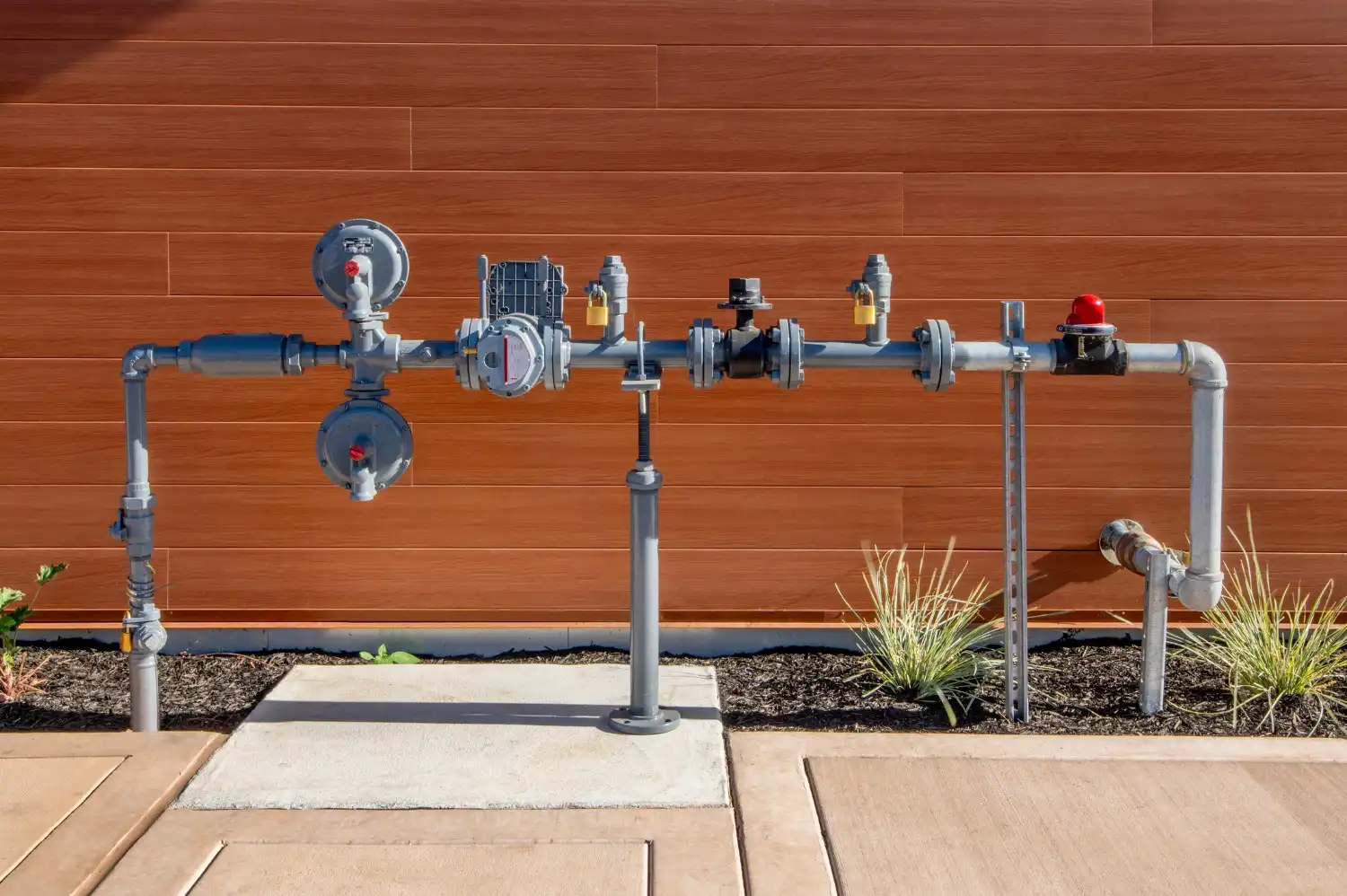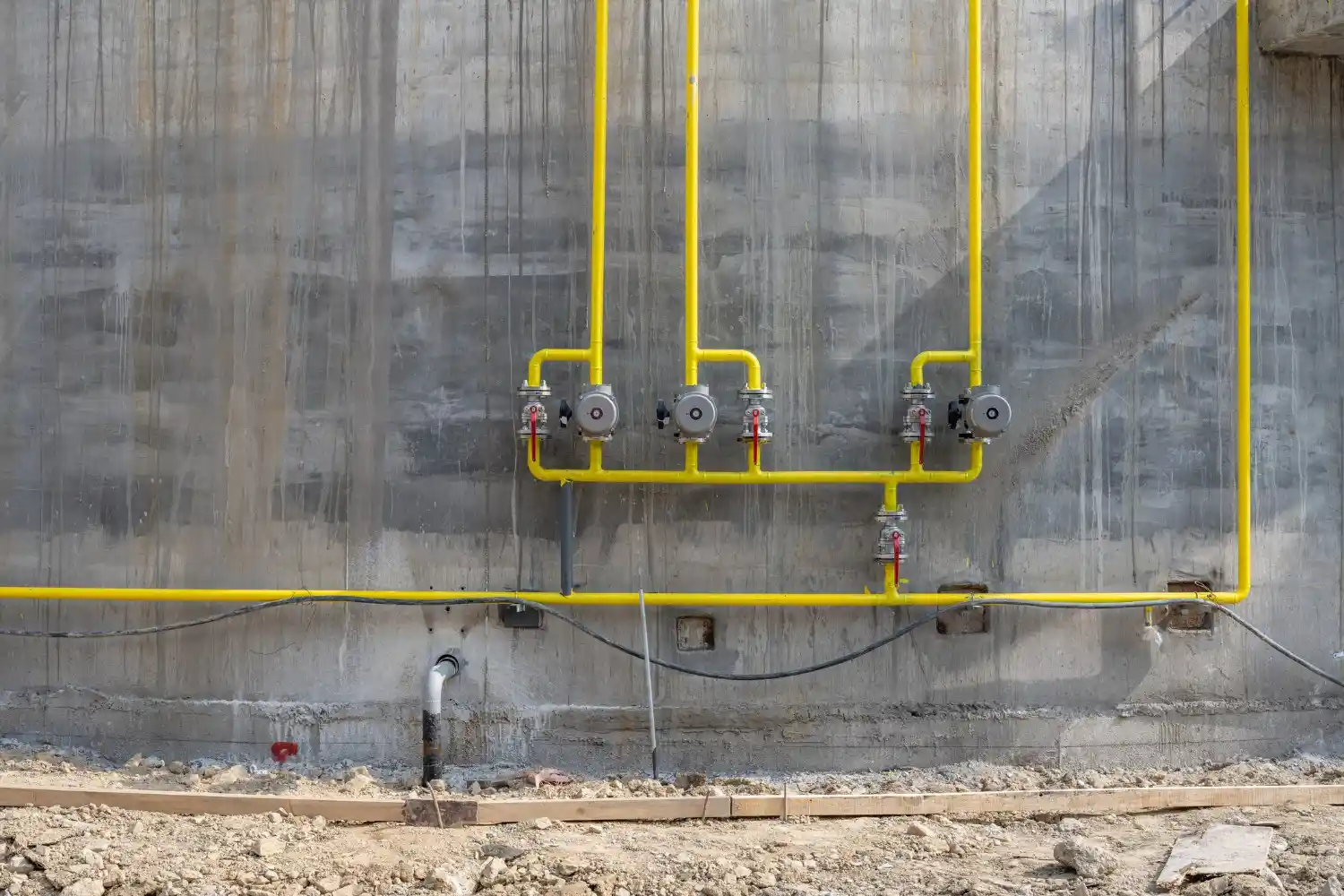Repipe Ballston: Restoring Your Home's Plumbing System
Homes in Ballston, much like many established neighborhoods, often feature plumbing systems that have served faithfully for decades. However, time and usage can take their toll, leading to a range of plumbing issues that a simple repair might not adequately address. Repiping involves replacing the old, worn-out pipes throughout your home with new, durable materials. This comprehensive update is often the most effective long-term solution for persistent plumbing problems, ensuring reliable water flow and quality for years to come.
For homeowners in Ballston facing declining plumbing performance, understanding the signs that indicate the need for repiping and the benefits of this significant upgrade is crucial. It's an investment in your home's future, protecting it from potential water damage, improving daily convenience, and enhancing overall property value.

Why Repiping Becomes Necessary in Ballston Homes
The plumbing systems in many older Ballston residences were installed using materials and techniques common at the time, which may now be contributing to problems. Galvanized steel pipes, for instance, were once standard, but over time they are prone to internal corrosion and mineral buildup. This accumulation restricts water flow and can lead to pipe failure. Other materials may also degrade, particularly with local water conditions.
Common issues arising from aging or corroded pipes include:
- Frequent Leaks: As pipes age, seals weaken, and corrosion creates weak spots, leading to recurring leaks in walls, floors, or ceilings. Even small, hidden leaks can cause significant damage over time and increase water bills.
- Low Water Pressure: Mineral buildup inside pipes reduces the available space for water to flow, directly resulting in diminished water pressure at faucets and showerheads. This can make even simple tasks like showering or running a dishwasher frustrating.
- Discolored or Bad-Tasting Water: Rust and other contaminants from deteriorating pipes can leach into the water supply, causing it to appear yellow, brown, or red, and sometimes imparting an unpleasant metallic taste or odor.
- Fluctuating Water Temperature: Inefficient or corroded pipes can affect the consistent delivery of hot water, leading to sudden temperature changes, especially when multiple fixtures are in use.
- Noisy Pipes: Banging, rattling, or vibrating sounds often indicate issues like water hammer (sudden pressure changes) or pipes that have become loose due to age or water pressure problems, all potentially linked to the condition of the piping system.
If you are experiencing any of these issues in your Ballston home, it may be time to consider a full Plumbing Repipe. Addressing these problems proactively can prevent more severe damage and costly emergency repairs down the line.

Signs Your Ballston Home May Need Repiping
Beyond the common symptoms mentioned, specific indicators can strongly suggest that a full repipe is the most appropriate course of action:
- Age of the Home and Pipes: Homes built before the mid-1970s are more likely to have galvanized steel or aging copper pipes that are nearing the end of their lifespan. Knowing the age of your home provides a good starting point for assessing the plumbing system's condition.
- Visible Corrosion: If you can see rust or green discoloration around exposed pipes, particularly near joints and connections, it's a clear sign of ongoing corrosion within the system.
- History of Repairs: Needing frequent repairs for leaks or blockages in different areas of the house is a strong indicator that the problem is systemic rather than isolated.
- Testing Results: Professional inspection can reveal the internal condition of pipes, even if external signs are not yet obvious. A plumbing professional can assess water flow rates and check for mineral buildup.
Recognizing these signs early allows homeowners to plan for repiping before a major pipe failure occurs, potentially saving thousands in water damage restoration costs.
The Repiping Process: What to Expect
Undertaking a full home repipe might seem like a daunting project, but modern techniques are designed to minimize disruption and efficiently replace your plumbing system. The process typically involves several key steps:
- Initial Assessment: A qualified plumber will inspect your current plumbing system, identify the extent of the issues, and determine the best approach and materials for your specific home.
- Planning and Permitting: Based on the assessment, a detailed plan is developed. Necessary permits are secured from local authorities in Ballston to ensure the work complies with current building codes.
- Preparation: Before work begins, areas are prepped to protect your home. Floors and furniture in work zones are covered, and technicians plan access points to walls and ceilings, typically in strategic locations to minimize patching and repair work later.
- Installation of New Pipes: The existing water supply lines are systematically replaced with new pipes, typically copper or PEX. This involves running the new lines through walls, ceilings, and floors, connecting them to fixtures like sinks, toilets, and showers. The process is carefully executed to bypass the old pipes entirely.
- Connecting Fixtures: Once the new main lines are in place, connections are made to all water-using fixtures and appliances throughout the house.
- System Testing: After installation, the entire new system is tested thoroughly under pressure to check for any leaks and ensure proper water flow to all outlets.
- Patching and Restoration: Following successful testing, access points in walls and ceilings are professionally patched and repaired. While paint or finishing may be needed by the homeowner, the plumbing company typically handles the structural patching. Debris is cleaned up, leaving the work areas tidy.
Throughout the process, efforts are made to maintain essential services as much as possible. Technicians often work section by section, and temporary water supply arrangements can sometimes be made.
Choosing the Right Material: PEX vs. Copper
Two primary materials are commonly used for modern residential repiping, each with distinct advantages:
- Copper: A traditional material known for its durability, longevity, and resistance to corrosion and bacteria. Copper pipes are rigid and require soldering for connections. They are suitable for both hot and cold water lines and have been a trusted standard for many years.
- PEX (Cross-linked Polyethylene): A flexible plastic tubing that has become increasingly popular for repiping. PEX is less expensive than copper, easier and faster to install (requiring fewer joints), and resistant to bursting in freezing conditions. It doesn't corrode or leach chemicals into the water. PEX is available in different colors for hot and cold lines, simplifying installation.
The choice between copper and PEX depends on various factors, including budget, water quality characteristics in your area, the layout of your home, and personal preference. A plumbing professional can help evaluate which material is best suited for your Ballston property's specific needs.
The Benefits of Repiping Your Ballston Home
Investing in a full home repipe offers substantial, long-term advantages:
- Improved Water Quality: New pipes, especially PEX or modern copper, do not corrode and introduce contaminants, leading to cleaner, safer, and better-tasting water straight from the tap.
- Increased Water Pressure: Removing the flow restrictions caused by old, corroded pipes immediately restores full water pressure and volume to all fixtures.
- Reduced Risk of Leaks: A new piping system eliminates weak points and corrosion-prone areas, drastically reducing the likelihood of future leaks and the associated water damage and repair costs.
- Lower Water Bills: By eliminating hidden leaks and improving system efficiency, repiping can contribute to lower monthly water consumption and bills.
- Enhanced Home Value: A completely updated plumbing system is a significant selling point and can increase your home's marketability and value. Potential buyers appreciate knowing they won't face immediate, costly plumbing renovations.
- Peace Of Mind: Knowing your home's plumbing is modern, reliable, and free from hidden issues provides significant peace of mind, allowing you to enjoy your home without worrying about the next leak or drop in pressure.
For homeowners in Ballston, repiping is more than just a repair; it's an essential upgrade that secures the health and functionality of your home's water system for decades.
Factors Influencing Repiping Cost and Financing
The cost of a home repipe in Ballston varies depending on several key factors:
- Size Of The Home: Larger homes with more fixtures require more piping and labor.
- Number Of Fixtures: More bathrooms, kitchens, and other water-using points increase the complexity and scope of the job.
- Material Choice: Copper is typically a more expensive material than PEX.
- Accessibility: The ease of accessing existing pipes behind walls, ceilings, and floors affects labor time and complexity.
- Local Plumbing Codes: Adherence to current Ballston and Arlington County plumbing codes may sometimes require specific approaches or materials.
While repiping is a significant investment, it is often more cost-effective in the long run compared to ongoing repairs and potential water damage. Understanding the financial aspect is important, and exploring available financing options can help make the project more manageable.
Expert Repiping Services in Ballston
Choosing a plumbing partner with local expertise in the Ballston and surrounding Arlington area is vital for a successful repipe. Understanding the typical construction styles, pipe materials used in different eras, and local water conditions allows a plumber to accurately assess your home's specific needs and execute the repipe efficiently and effectively according to local codes. Experience with homes in established neighborhoods means technicians are adept at working within existing structures and minimizing invasive work.
A professional repiping service ensures high-quality materials are used, the installation is performed by licensed and experienced technicians, and the work is completed with attention to detail, from the pipe connections to the final patching. The goal is always to restore your plumbing system's performance while respecting your home and minimizing disruption to your daily life.
Addressing Common Questions About Repiping
Homeowners often have questions when considering a repipe project:
How long does a repipe take?
The timeline varies based on home size and complexity, but most residential repipes can be completed within a few days to a week.
Will I be without water?
Plumbers work efficiently to minimize downtime. Often, water can be shut off only for short periods during connections, or temporary supply methods are used.
How much wall/ceiling damage will there be?
Experienced repiping specialists use techniques to create the smallest necessary access points, often strategically placed for easier repair and patching after the plumbing work is complete.
Are permits required?
Yes, permits are typically required for full home repipes in Ballston to ensure the work meets safety and code standards. A professional plumbing company handles this process.
How long do new pipes last?
Both PEX and copper pipes are highly durable. PEX has an estimated lifespan of 40-50 years, while copper can last 50-100 years or even longer.
Understanding these aspects helps homeowners feel more prepared and confident when planning their repiping project.
Trusted Brands.
We partner with industry-leading manufacturers to ensure your plumbing system runs on durable, high-quality parts built to last.


















Customer Testimonials
Cherry Blossom Plumbing has consistently provided top-notch service, ensuring every issue is resolved efficiently and professionally.

Service Areas
Proudly serving Arlington and the surrounding Virginia communities with fast, reliable plumbing solutions you can count on.




